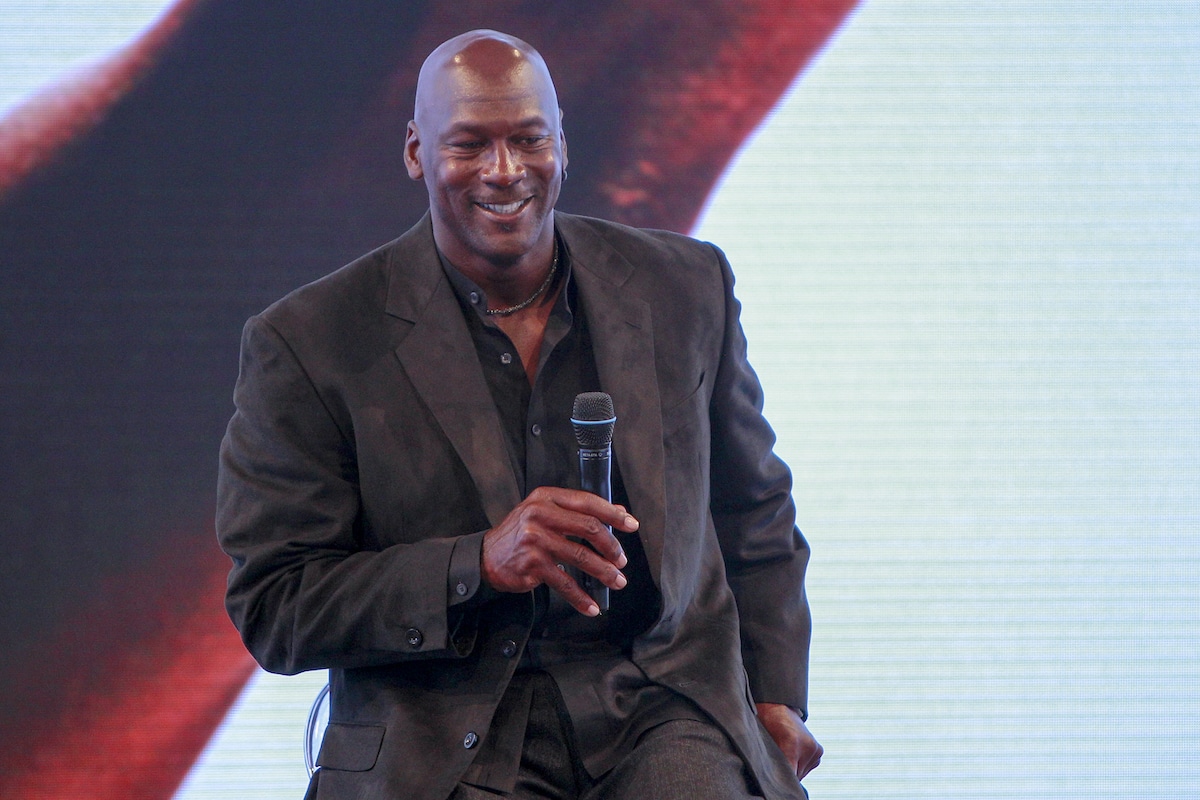It’s hard to overstate the impact Michael Jordan has had on the sportswear world. Not only did he almost single-handedly build one of the strongest brands in sportswear, Nike, but he also created his own brand, Air Jordan and Jumpman. His Air Jordans have become the most iconic sneakers of all time, spawning a legacy of shoes worn by countless athletes and fans around the world.
While now you can’t watch an NBA game without seeing a pair of Air Jordans, there was a time when the league was less receptive to the shoe. In fact, they even punished Jordan for wearing them. Here is the history of Air Jordans and why the NBA once considered the sneakers an adversary.
How Michael Jordan’s Air Jordans Were Created
▶” src=”https://www.youtube.com/embed/cXeQJBghvRw?feature=oembed” frameborder=”0″ allow=”accelerometer; automatic reading; clipboard-write; encrypted media; gyroscope; picture in picture” allow full screen>
According to Marie Claire, the Air Jordans were first created in 1984. This was the same year that Jordan was drafted to the University of North Carolina. As the third pick in the draft, MJ caught the eye of sneaker makers. While Nike is the hottest brand of the current era, Converse was the NBA’s official sneaker back then.
When Jordan met with Converse, they told him they couldn’t elevate his brand above their existing customers like Magic Johnson and Larry Bird. This led to Jordan excluding them. Jordan preferred Adidas, but they couldn’t come to an agreement with him. That’s when super-agent David Falk told Jordan he should partner with Nike, a young (at the time) sneaker company that primarily made track sneakers.
Jordan initially pushed back against Nike. But Falk enlisted the player’s parents to convince him to meet Nike. He did, they offered him a big deal, and he accepted. The rest was history.
The Jordan 1’s Place in Air Jordan Legacy
▶” src=”https://www.youtube.com/embed/17NewHhRMqM?feature=oembed” frameborder=”0″ allow=”accelerometer; automatic reading; clipboard-write; encrypted media; gyroscope; picture in picture” allow full screen>
Jordan’s first pair of Air Jordans were known as the Jordan 1. They became household items, something every basketball fan wanted to own. Jordan brought them back for his final game as a Chicago Bulls player at Madison Square Garden, although he reported that they injured their feet while doing so.
It seems unthinkable to consider that now, but the NBA wasn’t too interested in Jordan’s personal branding and shoe choice at first. According to CNN, the NBA initially banned Jordan 1s. Their explanation was that they failed to adhere to NBA sneaker guidelines which stated that all sneakers should be predominantly white and share team uniform colors. . The league chose to fine Jordan $5,000 for every game he wore them.
In hindsight, the fine may not seem like a big deal to someone like Jordan. But remember, this wasn’t the superstar MJ everyone had come to know and love. He was a young player who was still trying to find his place in the game.
How Michael Jordan and Nike Reacted to the Jordan 1 Ban
The NBA is a global empire now built on the reputation of its superstars, with Jordan being the biggest name in league history. But by the time Nike unveiled their new shoe, Jordan wasn’t the commanding figure he is today. He hadn’t won any championships, still new to the league.
Luckily for Jordan, from the early stages of their partnership, Nike proved what a good teammate they could be for him. Seeing a good opportunity to increase exposure for their sneakers and brand, Nike helped Jordan pay the fines.
Air Jordans became tied to Jordan’s legacy from there. Nike produced several iterations of the sneaker, each more popular than the last. Today, Jordan and Nike have taken a shoe and made it their own global brand.
RELATED: Michael Jordan’s Brutal Trash Talk Once Ruined A Teammate’s Career

